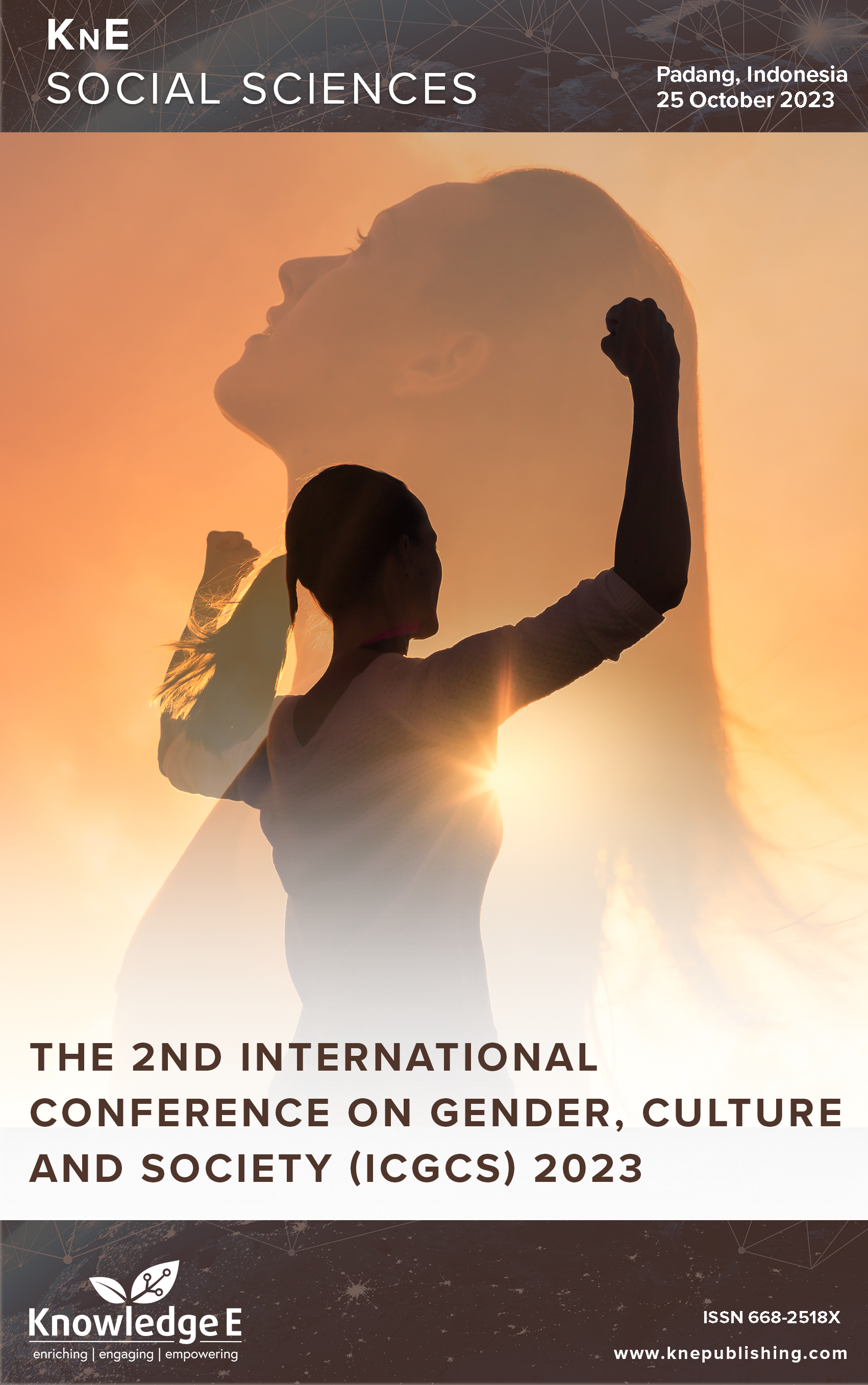Analysis of The Potential of Women’s Economic Empowerment in the Digital Marketing Sector
DOI:
https://doi.org/10.18502/kss.v9i23.16752Abstract
Women’s economic empowerment refers to the process of enabling women to have broader control of their economic lives, including their access to resources, opportunities, and decision-making power. If women are empowered economically, they are better able to support themselves and their families, contribute to their communities, and support economic growth. Women entrepreneurs should implement current technology to maximize their business and marketing. By using digital applications, innovative creations can be provided uniquely and expanded into various materials. Furthermore, there are applications that help users to do independent financial management, having unique branding, global networking and promotions. Digital marketing helps to expand product reach in society and social media accelerates communication with customers. By attending workshops, joining industry associations, and participating in events or online communities, women can enrich their talents, access funding from organizations that support women entrepreneurs, and increase family economic support. On the other hand, there are some constraints faced, such as taking care of children and budgeting limitations for increasing their skills. This study was conducted to analyze twenty-five women’s potential in the digital marketing sector through counseling and training programs. They were from the local Batik home industry of 12 villages in Malang Regency, East Java province. These participants were chosen purposively from 100 members of PKK (Empowerment of Family Welfare) who participated in workshops and training local batik and have unique characteristics since their houses are located on the border of Malang city and Malang regency and their lifestyle is such that they are using a cellphone in daily life but not maximizing information from it, having social communities, but not maximizing their potencies in economics opportunities. This study used a quantitative approach. Data was collected through the questionnaire distribution to participants in training activities. Data analysis was carried out using SWOT analysis. The results showed that women’s perception and understanding of digital marketing in the research area were classified as low (80%), and this is also represented as a weakness and thread (80%). In order to solve this problem, micro, small, and medium enterprises (MSME) are suggested to collaborate with stakeholders in developing a sustainable program for digital marketing improvement, having support and access to markets from the governance.
Keywords: Women Empowerment; Women Participation; Socioeconomics condition
References
Badan Pusat Statistik, 2020. Kabupaten Malang dalam Angka 2020.
Bhagat R, Sambargi S. Evaluation of personal innovativeness and perceived expertise on digital marketing adoption by women entrepreneurs of micro and small enterprises [IJRAR]. International Journal of Research and Analytical Reviews. 2019;6(1):338–51.
Kent CA, Sexton DL, Vesper KH. Encyclopedia of Entrepreneurship. Volume 1. Englewood Cliffs (N.J.): Prentice-Hall; 1982. p. 4.
Dhameja SK. Women Entrepreneurs: Opportunities, Performance, Problems. New Delhi: Deep & Deep Publications; 2002.
Gopinathan R. Impact of Women Entrepreneurship Development on Families: A Study of Women run MicroEnterprises in Selected districts of Maharashtra, June 2010; 2010
Hadad, A. P. Y. Perempuan dan perannya dalam pengembangan teknologi. AL- WARDAH: Jurnal Kajian Perempuan, Gender dan Agama. 2021;15(2):237-249.
Hisrich RD, Öztürk SA. Women entrepreneurs in a developing economy. J Manage Dev. 1999;18(2):114–25. DOI: https://doi.org/10.1108/02621719910257639
Surti K, Sarupriya D. Psychological Factors effecting Women Entrepreneurs: 9271 Journal of Positive School Psychology Some Findings. Indian J Soc Work. 1983;44(3):287–95.
Latief ND. dan Sayatman Ekplorasi Desain Motif Baru Batik Kota Malang. Jurnal sains dan seni IT. 2023;8(2). DOI: https://doi.org/10.12962/j23373520.v8i2.49242
Vinze MD. Women Entrepreneurs in India. New Delhi: Mittal Publications; 1987. p. 53.
Mehta A, Mehta MC. Rural Women Entrepreneurship in India: Opportunities and Challenges. International Conference on Humanities, Geography and Economics (ICHGE’2011).
Mishra and Kiran. Rural Women Entrepreneurs: Concerns & Importance [IJSR]. Int J Sci Res. 2014 Sep;3(9).
Mohiuddin, “Entrepreneurship Development among Women: retrospect’s and Prospects,”. SEDME. 1983;10(1):1–8. DOI: https://doi.org/10.1177/0970846419830101
Muna GA, Ardani W, Putri IA. Penguatan Pemberdayaan Ekonomi Perempuan melalui Presedensi G20 pada Era Pandemi Covid 19 pada UMKM di Bali. Lensa Ilmiah: Jurnal Manajemen Dan Sumberdaya. 2022;1(1):21–7. DOI: https://doi.org/10.54371/jms.v1i1.163
Murali Krishna. Problems and Prospects of Women Entrepreneurs in North Coastal Andhra Pradesh. SEDME Journal. 2009;42(21).
Meally NB. Small Business Opportunities for Women in Jamaica. SEDME. 1991;18(1):186–91. DOI: https://doi.org/10.1177/0970846419910101
Hisrich RD, Fuldop G. Women Entrepreneurs in Controlled Economies: A Hungarian Perspective. Frontiers of Entrepreneurship Research. 1993;7(3):590–1.
Rachnini, D.J., 2020. UMKM di Masa Pandemi Covid-19. ISEI madura
Rathna C, Badrinath V. A study on Entrepreneurial Motivation and Challenges Confront by Women Entrepreneurs in Thanjavur District Indian. J Sci Technol. 2016;9(27). DOI: https://doi.org/10.17485/ijst/2016/v9i27/97594
Rohmah S. Model Pemberdayaan Ekonomi Perempuan Melalui Grassroot Microfi- nance Syariah. Sawwa. Jurnal Studi Gender. 2014;10(1):59–82.
Shah H. 2013.Creating an enabling Environment for Women’s Entrepreneurship in India. Vandana Publications; 2013.
Srividhya K, Paramasivam J. A Study On Perception Towards Women Entrepreneur- ship In Digital Marketing. J Posit Sch Psychol. 2022;:9265–71.
Sunanda & Hiremani Naik. “A Conceptual Framework on Role of Women Entrepreneurs in Development of Indian Economy”, IOSR Journal of Business and Management, Volume 19, Issue 8. Ver. 2017 Aug;VIII:42–5.
Swetha T, Rao VK. Entrepreneurship in India. International Journal of Social Science & Interdisciplinary Research. 2013;2(7).
Tjiptaningsih W. Pemberdayaan perempuan dalam upaya peningkatan ekonomi keluarga (Studi kasus pada kelompok usaha perempuan di desa Sindangkempeng Kecamatan Greged Kabupaten Cirebon). 2018.
Utami S. Eksistensi perkembangan perekonomian perempuan di era digitalisasi. AN-NISA: Jurnal Studi Gender dan Anak. 2019;12(1):596-609. DOI: https://doi.org/10.30863/annisa.v12i1.454

